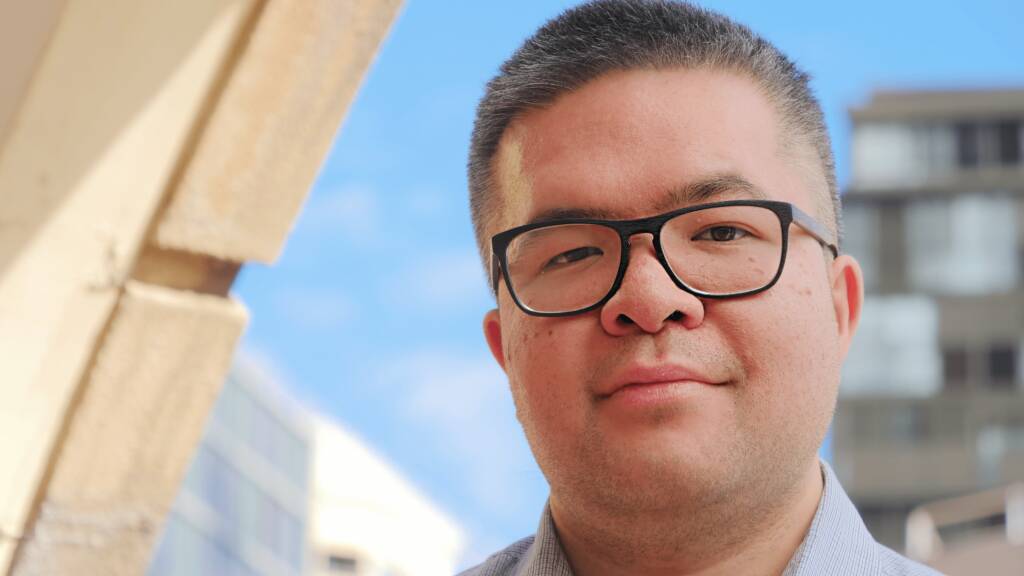Researchers are calling for more Chinese Australians to be employed in the public service, boosting language skills and ability to track and counter disinformation campaigns from China.
Subscribe now for unlimited access.
$0/
(min cost $0)
or signup to continue reading
Researcher Osmond Chiu and Sydney local councillor Kun Huang said Chinese Australians were the main target of disinformation campaigns from China, which used WeChat, a messaging system used by millions of people in Australia that was very difficult to monitor.
"Tackling misinformation will require boosting our China capability within the Australian Public Service," the pair said.
They said Chinese Australians had been treated with suspicion or had problems with security clearances in the public service for security-sensitive jobs.
"It is possible that unconscious biases and security assessment processes are inadvertently excluding Chinese Australians because of increased risk aversion," possibly undermining Australia's capacity to deal with foreign interference, the pair said, in a submission to a Senate inquiry into the use of social media for interference.
Both are members of the Labor Party. Mr Chiu is a researcher with the Per Capita thinktank.
Their message was echoed by another China watcher, the China Policy Centre, which said Chinese Australians were not the vector for China's foreign interference campaigns but the target.
"China's social media operations, especially misinformation operations, are on the rise. China is targeting Chinese diaspora, including Chinese-Australians, in order to shape perceptions across a growing spectrum of issues.
"These activities are often conducted through Chinese social media platforms, such as WeChat, Weibo, Douyin - Chinese version of TikTok," Adam Ni and Yun Jiang, a former public servant, said in a submission to the inquiry.

Australia must protect the rights of Chinese Australians in the same way as any other Australians, and treat them as a national asset, not a liability, they said.
Mr Chiu said 2.9 million Australians were using WeChat. It wasn't blocked in China like other social media platforms, making it easier to contact friends and family in China, and it was ubiquitous in China for everyday transactions.
But it had been used to spread disinformation about the coronavirus, spreading panic among Chinese Australians.
WeChat lacked transparency and unlike Twitter and Facebook, did not have hashtags or trending topics.
WeChat helped people to find and chat with people within a three kilometre radius, allowing the creation of local groups and the spread of information further than immediate contacts.
Ms Chiu said the function had helped the spread of rumours about the coronavirus.
Official accounts provided content, which was shared by users with chat groups including up to 500 people, and without public features, it was far more difficult to trace disinformation campaigns.
"Not only is content subject to Chinese government legislation, it is difficult to track individuals without support from [WeChat owner] Tencent, as demonstrated during the 2019 federal election," Mr Chiu said.
"It makes it difficult to take action against any individual or organisation that may have violated electoral laws or engaged in defamation."
Protecting elections would mean boosting attempts to monitor WeChat, including employing Chinese language speakers to watch the spread of information. People who spread disinformation must be penalised, otherwise WeChat would be used more as a low-cost, high-benefit strategy to undermine Australia's democracy.
Professor Rob Ackland, at the Australian National University, said he and University of Canberra researcher Mathieu O'Neil had studied about 70 troll accounts active in the Australian political sphere in 2015 and 2016.
The accounts were from the Russian Internet Research Agency. He didn't give details but said one had used the account to build influence with relatively innocuous tweets that changed once an audience had been garnered.
A number of troll accounts had been focused on refugees, again starting with relatively mainstream views, but morphing over time to send more insidious messages, such as comparing Manus Island asylum seekers with Islamic state terrorists.
Associate Professor O'Neil said they had followed one troll for a year to analyse the modus operandi.
The account, which produced as many tweets as the others put together, had spread headlines from news media about Australia, focused on "depressing" news, of bungles, businesses closing, cancer cases rising, stories of death and destruction, and wheat crops failing.
"This is definitely something that's originating from a foreign country. So why are they doing it? What's the intent here?" he asked.
"Obviously the intent is a form of psychological warfare, increasing a sense of despondency, undermining belief in common values and trust in institutions, making Australia a place where things are bad, nothing is working properly.
"Ultimately, I think the aim is to increase divisions in society, making associations between minorities and evil figures."
Correction: An earlier version of this story had Prof O'Neil referring to psychological welfare. His reference was to psychological warfare.


